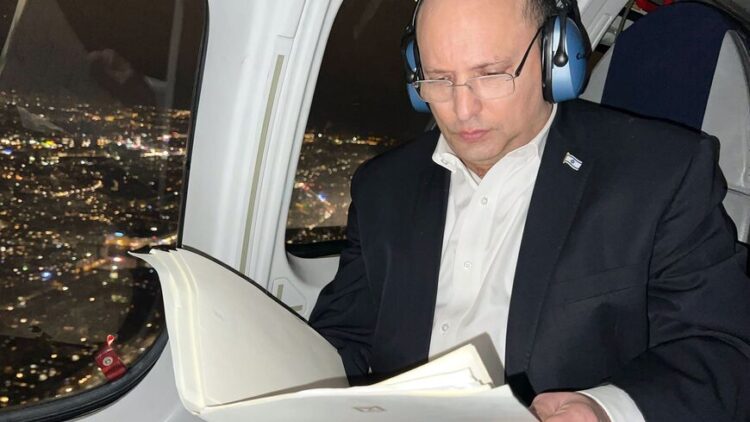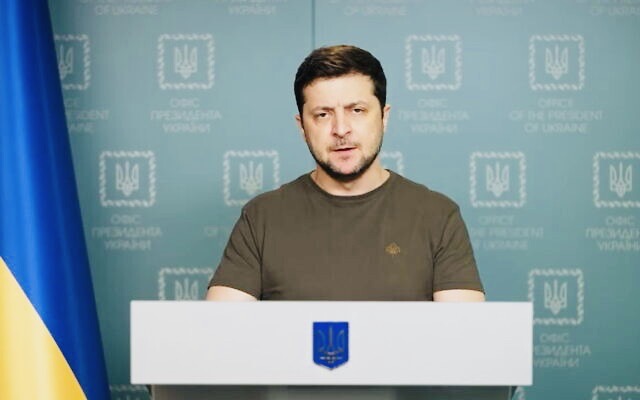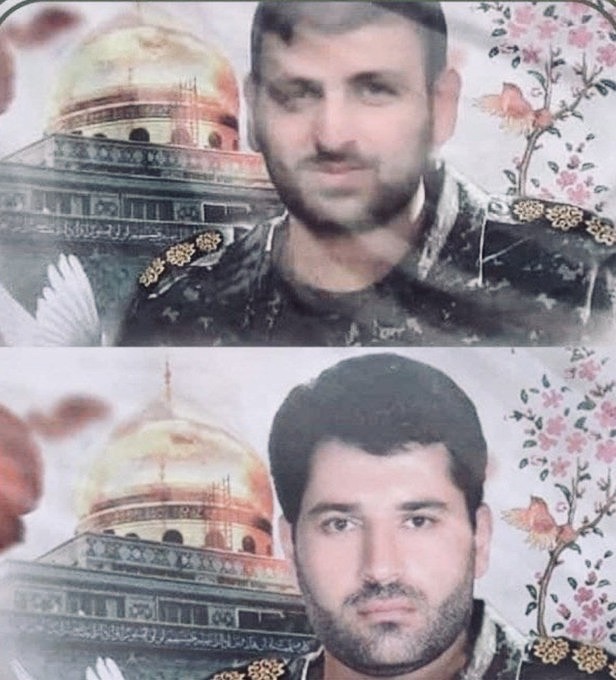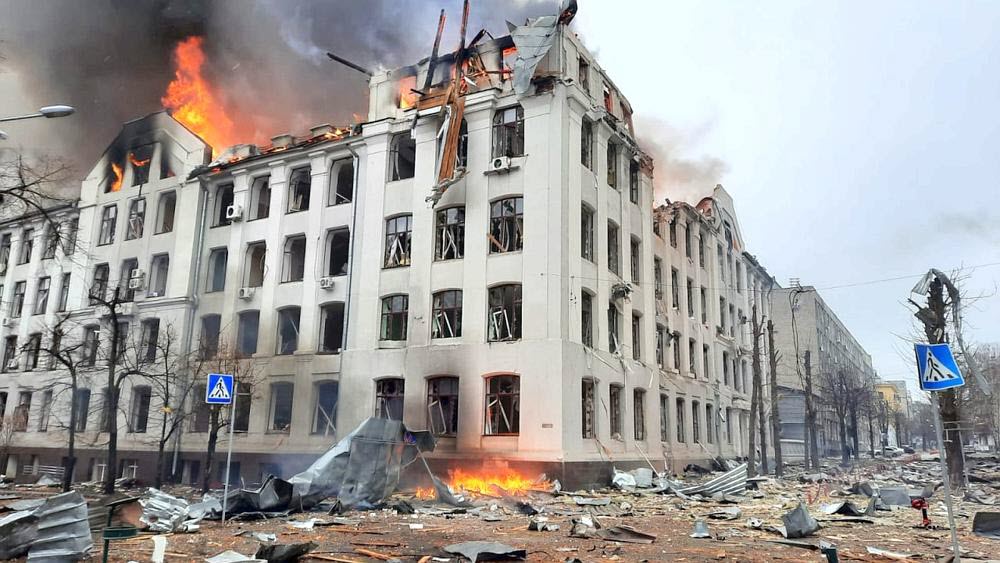Israel is straining to preserve its finely calibrated policy regarding the current war in Ukraine. Keen to uphold its status as one the few countries maintaining cordial relations with both the combatants, Israel has been careful to offend neither Ukraine nor Russia. It’s a difficult balancing act, and whether Israel can sustain it indefinitely remains to be seen.
Under pressure from the United States, its chief ally and benefactor, Israel joined 140 countries at the United Nations General Assembly to condemn Russia’s invasion of Ukraine. Prior to the vote, Israel’s deputy UN ambassador, Noa Furman, deplored Russia’s incursion as “a serious violation of the international order” and urged Russia to cease its military operations.
In response, Russia’s embassy in Tel Aviv expressed “disappointment” with Israel’s condemnation.
Yet the Russians are acutely aware that Israel has not imposed economic sanctions on Russia, like so many other nations. Nor has Israel followed the lead of its Western partners by closing its airspace to Russian aircraft.
Furthermore, Israel has attempted to broker Russia-Ukraine peace negotiations. Last Saturday, Israeli Prime Minister Naftali Bennett, an Orthodox Jew, flew to Moscow during the sabbath to conduct talks with Russian President Vladimir Putin, thereby becoming the first Western leader to meet Putin since Russia’s invasion on February 24.

Before embarking on his trip, which also took him to Berlin to meet the German chancellor, Bennett spoke to Putin and his adversary, Ukrainian President Volodymyr Zelensky.
During the course of their three-hour conversation, Bennett and Putin discussed, among other topics, the current hostilities and the safety of Ukraine’s Jewish community.
“I went there to assist the dialogue between all of the sides, of course with the blessing and encouragement of all the players,” he said in reference to Russia, Ukraine and the United States. Bennett has declined to divulge details, but Israeli Foreign Minister Yair Lapid flew to Latvia to brief U.S. Secretary of State Antony Blinken.
It is highly questionable whether Israel’s mediation efforts will succeed, given Ukraine’s immense differences with Russia. Bennett, though, believes that Israel has a “moral obligation” to keep trying to break the impasse. “We will continue to assist as needed,” he said. “Even if the chance is not great.”
Zelensky, in his fifth telephone call with Bennett since the outbreak of the war, thanked him for his diplomacy. But a few days earlier, Zelensky expressed disappointment with Israel, saying Bennett had failed to drape himself “in our flag.”

Oleksandr Merezhko, the chairman of Ukraine’s Committee on Foreign Policy and Interparliamentary Cooperation, has called Bennett’s mediation efforts a step in the right direction, but basically “unrealistic” because Russia, in his view, is not interested in ending the fighting.
The Ukrainian governor of Lviv, Maksym Kozytskyy, recently told an Israeli reporter that Ukraine needs Israeli weapons, particularly air defence systems, rather than Israel’s sympathy.
On March 7, however, Ukraine’s ambassador to Israel, Yevgen Korniychuk, voiced appreciation for Bennett’s diplomacy.

“We are not sure whether it is successful or not at the moment, but the fact that (Bennett) left during Shabbat to talk about peace is unprecedented,” he said. “We thank (Israel) for its effort. Our government sees Jerusalem as a possible location for negotiations with Russia. The peace effort is priceless for us.”
Significantly enough, Korniychuk expressed understanding for Israel’s reluctance to send military supplies to Ukraine, though he has requested protective gear like helmets.”Our government believes that, as a partner and a friend, you can do more,” he said, echoing Zelensky’s mantra.
Essentially, Israel has positioned itself midway between Ukraine and Russia so as not to alienate Russia, a major player in the Middle East.
In 2015, Putin sent military forces to Syria — Russia’s main Arab ally — to help Syrian President Bashar al-Assad turn the tide in the civil war that has convulsed his nation for the past decade.
Much to Israel’s apprehension, Iran — its arch enemy — has been trying to entrench itself militarily in Syria since about 2011. Israel has repeatedly bombed Iranian and Syrian bases there. To Israel’s relief, Russia has not responded to its air raids, its restraint due to its 2015 deconfliction agreement with Israel.
On March 7, Israeli aircraft struck several sites near Damascus, killing two members of Iran’s Islamic Revolutionary Guards Corps. Once again, Russia remained conspicuously silent. This was Israel’s first bombing raid in Syria since the start of the war in Ukraine. Israel last bombed Syria on February 24, just hours before Russian tanks rolled into Ukraine.

Since Israel’s cardinal objective is to preserve its accord with Russia, Israel believes it has no alternative but to be neutral in Russia’s war with Ukraine.
Israel’s strategic interests in Syria have not prevented it from shipping 100 tons of humanitarian aid to Ukraine and building a field hospital near Lviv.
In another sign of goodwill toward Ukraine, Israeli Interior Minister Ayelet Shaked has agreed to allow 20,000 Ukrainian citizens to stay in Israel. Nearly all of them are illegal workers. Skaked will permit an additional 5,000 Ukrainian refugees to enter Israel without having to pay a special $3,050 fee.

Israel expects thousands of Ukrainian Jews to make aliyah should the war continue indefinitely. Hundreds of them already have arrived in Israel.
If the war drags on, enormous pressures may well be brought to bear on Israel by the United States and its allies to reinforce its support of Ukraine. If this should prove to be the case, Israel would find itself in a very uncomfortable position.
